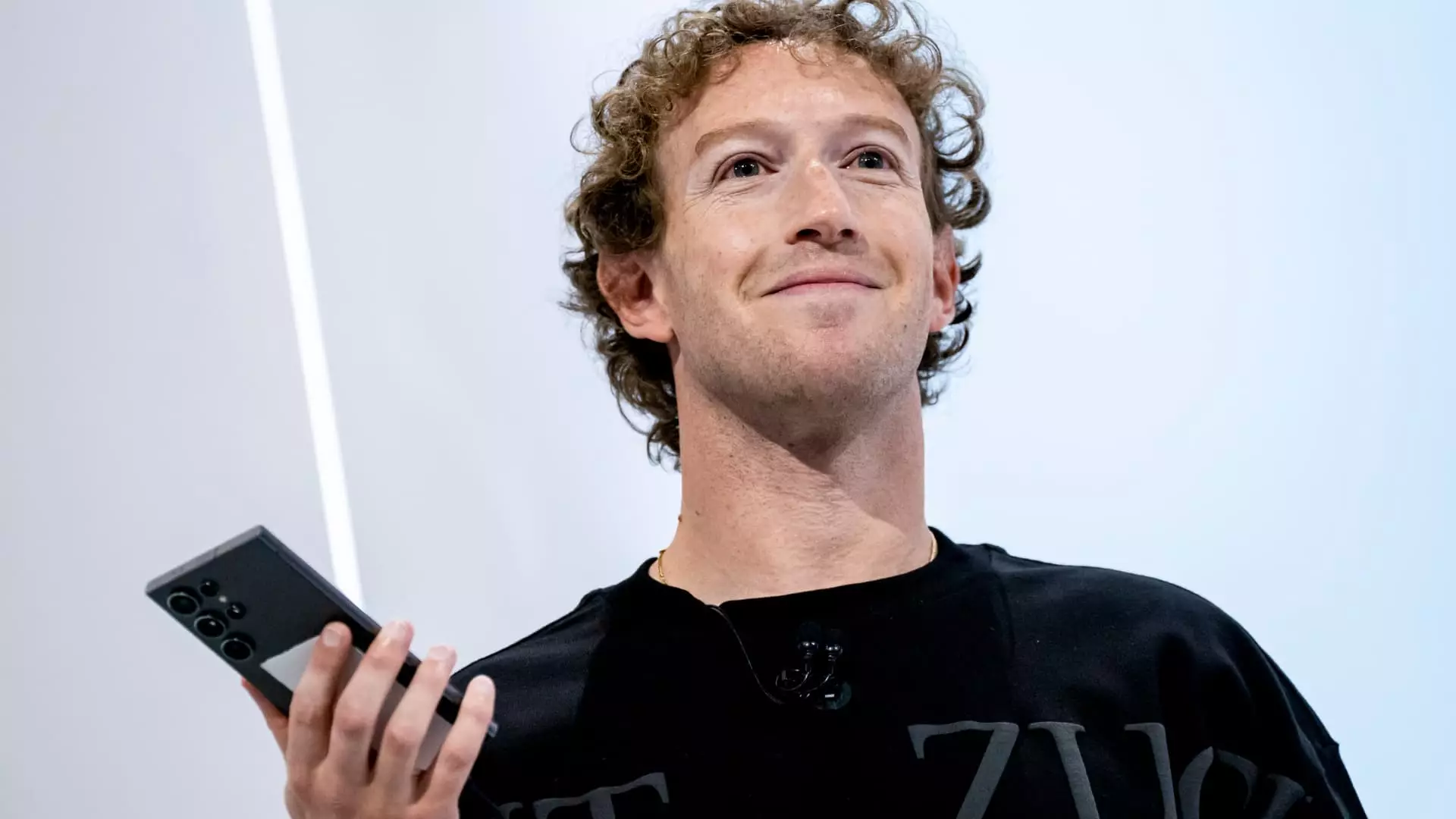The landscape of technology is often marked by fierce competition and rivalry, with two behemoths, Meta and Apple, leading the charge. Recent comments made by Meta CEO Mark Zuckerberg during an episode of the “Joe Rogan Experience” have reignited discussions around innovation, competition, and the corporate strategies of these companies. In this article, we will delve into Zuckerberg’s critiques, explore Apple’s responses, and assess what this rivalry means for the future of technology.
Zuckerberg’s statements echo a growing sentiment within the tech community that Apple has entered a period of stagnation in terms of innovation. While it’s undeniable that the iPhone revolutionized mobile technology nearly two decades ago, Zuckerberg laments that Apple has failed to deliver significant advancements since then. His remarks position the iPhone as a cornerstone of modern connectivity that has enabled myriad possibilities. However, he argues that Apple has become complacent, focusing more on maintaining its dominance in the market than on pushing the boundaries of technology.
This critique brings to light a broader issue in the tech industry: the delicate balance between maintaining legacy products and innovating for the future. While the iPhone continues to sell well, its incremental updates are fostering consumer apathy. Zuckerberg implies that consumer behavior, particularly the slow upgrade cycle among iPhone users, is a direct result of the lack of groundbreaking features.
One of the most controversial points raised by Zuckerberg involves Apple’s revenue model, particularly its “30% tax” on developers using its App Store. This practice has drawn criticism from various quarters, with many suggesting that it stifles competition and innovation. Zuckerberg’s view aligns with others in the tech industry, who argue that the fee disproportionately affects smaller developers while allowing Apple to reap significant profits. This situation poses a moral quandary: should companies prioritize profitability at the expense of innovation and fairness in the marketplace?
By framing Apple’s moves as “squeezing” developers, Zuckerberg paints a picture of a company more interested in maintaining profit margins than fostering a vibrant ecosystem where innovation can thrive. This critique raises questions about Apple’s commitment to its foundational promises of creativity and originality.
In his interview, Zuckerberg also took aim at Apple’s justification for its restrictive policies, which they argue are necessary to preserve user privacy and security. Zuckerberg contends that these claims mask a deeper issue—an unwillingness to adapt and evolve their systems to facilitate easier third-party integration. He argues that the very protocols designed to secure user data could be enhanced, thus paving the way for more open connectivity without compromising safety.
This observation is critical in understanding the implications of corporate policies on technological evolution. A company’s approach to privacy and security is paramount; however, it should not become a veil for monopolistic strategies that limit innovation.
Zuckerberg’s comments extend to Apple’s recent foray into augmented reality with the Vision Pro headset, which he admits as a bold move but suggests it has not resonated with consumers. The contrast between Apple’s and Meta’s approaches to virtual reality highlights differing philosophies regarding user engagement and experience. While Zuckerberg acknowledges the potential of Apple’s ambitions, he does not shy away from critiquing the execution and market reception of their products.
This critique raises an important question for the digital marketplace: how do you balance innovation with consumer acceptance? With Meta heavily invested in its Quest line of headsets, the competition in the VR sector is poised to become more intense, intensifying the race to capture user interest and market share.
Mark Zuckerberg’s critiques of Apple underscore the complexities and challenges facing major tech companies as they navigate the future of innovation and competition. The battle between these giants is not merely about market share but also about the principles that drive technological advancement. As both tech titans continue to evolve, their strategies, product offerings, and corporate philosophies will resonate across the industry. Zuckerberg’s call for more innovation and less restriction speaks to a larger desire for a tech environment that prioritizes creativity and fairness—a goal that remains elusive in a world driven by profits and power dynamics.


Leave a Reply